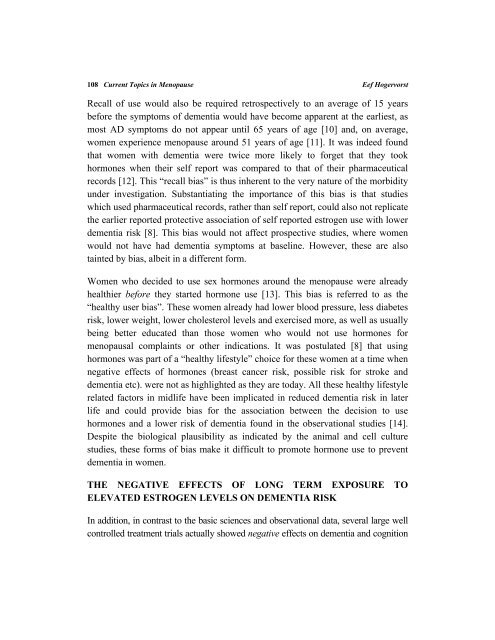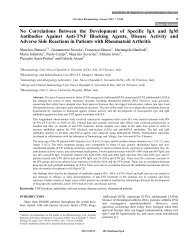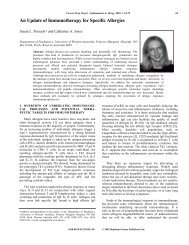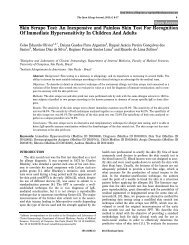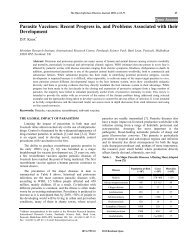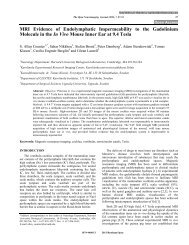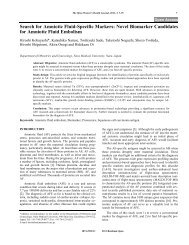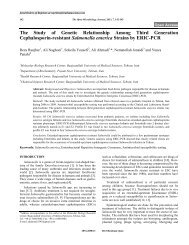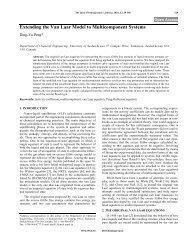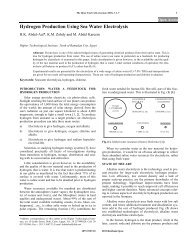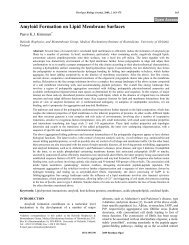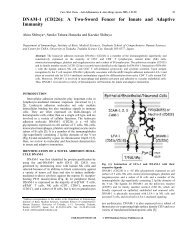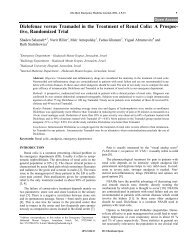Download - Bentham Science
Download - Bentham Science
Download - Bentham Science
You also want an ePaper? Increase the reach of your titles
YUMPU automatically turns print PDFs into web optimized ePapers that Google loves.
108 Current Topics in Menopause Eef Hogervorst<br />
Recall of use would also be required retrospectively to an average of 15 years<br />
before the symptoms of dementia would have become apparent at the earliest, as<br />
most AD symptoms do not appear until 65 years of age [10] and, on average,<br />
women experience menopause around 51 years of age [11]. It was indeed found<br />
that women with dementia were twice more likely to forget that they took<br />
hormones when their self report was compared to that of their pharmaceutical<br />
records [12]. This “recall bias” is thus inherent to the very nature of the morbidity<br />
under investigation. Substantiating the importance of this bias is that studies<br />
which used pharmaceutical records, rather than self report, could also not replicate<br />
the earlier reported protective association of self reported estrogen use with lower<br />
dementia risk [8]. This bias would not affect prospective studies, where women<br />
would not have had dementia symptoms at baseline. However, these are also<br />
tainted by bias, albeit in a different form.<br />
Women who decided to use sex hormones around the menopause were already<br />
healthier before they started hormone use [13]. This bias is referred to as the<br />
“healthy user bias”. These women already had lower blood pressure, less diabetes<br />
risk, lower weight, lower cholesterol levels and exercised more, as well as usually<br />
being better educated than those women who would not use hormones for<br />
menopausal complaints or other indications. It was postulated [8] that using<br />
hormones was part of a “healthy lifestyle” choice for these women at a time when<br />
negative effects of hormones (breast cancer risk, possible risk for stroke and<br />
dementia etc). were not as highlighted as they are today. All these healthy lifestyle<br />
related factors in midlife have been implicated in reduced dementia risk in later<br />
life and could provide bias for the association between the decision to use<br />
hormones and a lower risk of dementia found in the observational studies [14].<br />
Despite the biological plausibility as indicated by the animal and cell culture<br />
studies, these forms of bias make it difficult to promote hormone use to prevent<br />
dementia in women.<br />
THE NEGATIVE EFFECTS OF LONG TERM EXPOSURE TO<br />
ELEVATED ESTROGEN LEVELS ON DEMENTIA RISK<br />
In addition, in contrast to the basic sciences and observational data, several large well<br />
controlled treatment trials actually showed negative effects on dementia and cognition


